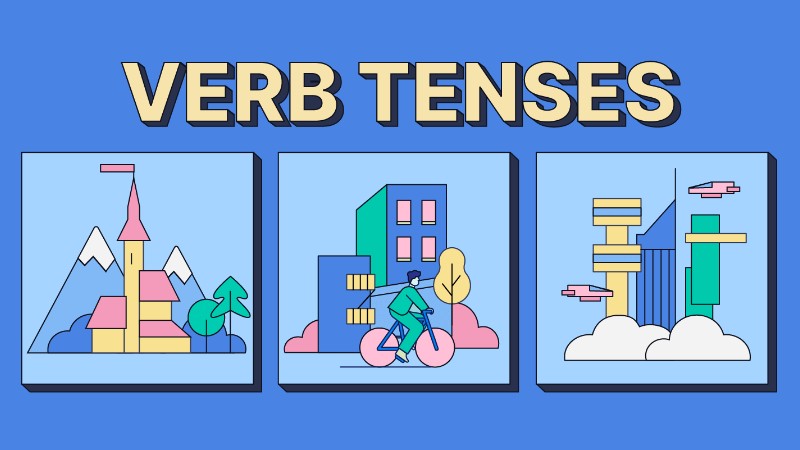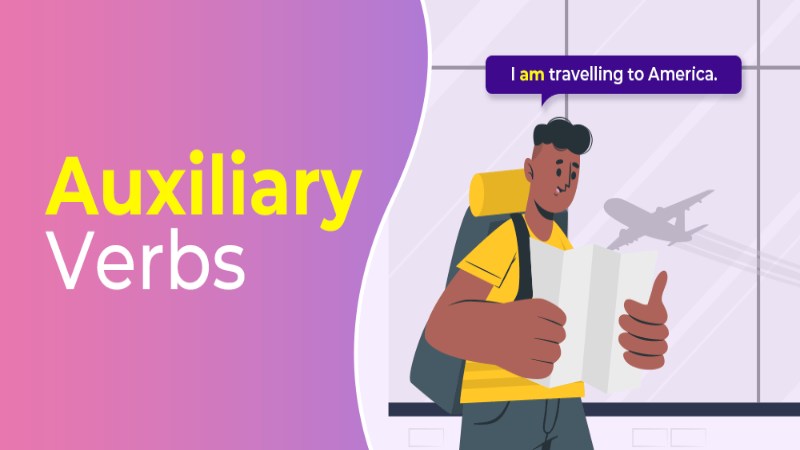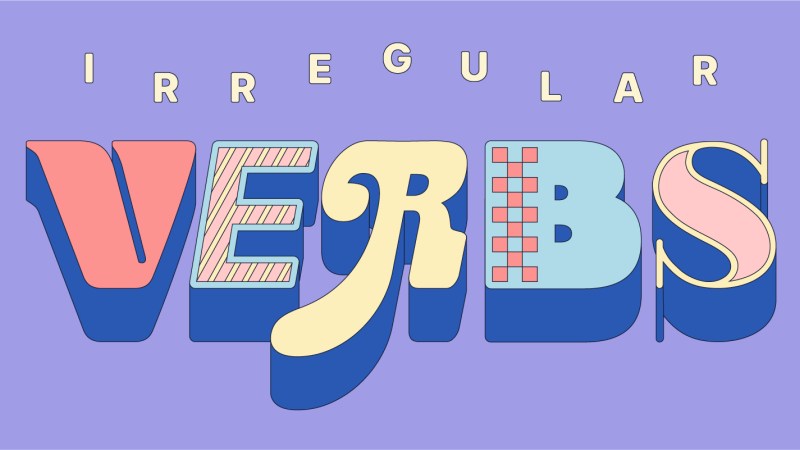
动词时态告诉我们动作在何时发生:现在、过去或未来。三个主要时态中的都有进行时、完成时和完成进行时,它为我们提供了更多讯息来说明动作的时间、动作的发展或动作的完成。
这张动词时态英文文法表概述了 12 种不同的动词时态,并附有肯定、否定和疑问词的问句或一般问句形式的范例。您还将找到有关每个时态和常见信号词的用法的提示,以帮助您识别时态。
| 时态 | 肯定(P)、否定(N)和疑问句(Q) | 用法 | 信号词 |
| 一般现在时 | P: He speaks. N: He does not speak. Q: Does he speak? | * 重复/固定的动作 * 一般常见动作 * 一个接一个发生的动作 * 确认的未来行动(时间表) | always, every …, never, normally, often, seldom, sometimes, usually |
| 现在进行时 | P: He is speaking. N: He is not speaking. Q: Is he speaking? | * 正在发生的动作 * 在某一个限定的时间段里发生的动作 * 已经计画好的或事先同意的未来动作 | at the moment, just, just now, Listen!, Look!, now, right now |
| 一般过去时 | P: He spoke. N: He did not speak. Q: Did he speak? | * 过去发生的单一动作或重复的动作 * 过去一个接着一个发生的动作 * 有一个新动作打断了一个已经发生的动作 | yesterday, 2 minutes ago, in 1990, the other day, last Friday |
| 过去进行时 | P: He was speaking. N: He was not speaking. Q: Was he speaking? | * 强调过去某个动作发生的过程 * 数个动作同时发生 * 被一个新动作打断时正在发生的动作 | while, as long as |
| 现在完成时 | P: He has spoken. N: He has not spoken. Q: Has he spoken? | * 强调结果 * 持续到现在的动作 * 刚刚完成的动作 * 已完成的动作且对现在有影响 * 到说话当下从未/一次/不止一次发生的动作 | already, ever, just, never, not yet, so far, till now, up to now |
| 现在完成进行时 | P: He has been speaking. N: He has not been speaking. Q: Has he been speaking? | * 强调的是行动(不是结果) * 一直持续到现在的动作,且还在继续 * 已完成的动作且对现在有影响 | all day, for 4 years, since 1993, how long?, the whole week |
| 过去完成时 | P: He had spoken. N: He had not spoken. Q: Had he spoken? | * 过去某个时间之前发生的动作 * 有时可以与过去完成进行式互换 * 只强调过去某个时间点之前发生的事情 | already, just, never, not yet, once, until that day |
| 过去完成进行时 | P: He had been speaking. N: He had not been speaking. Q: Had he been speaking? | * 过去某一点之前的动作 * 有时候可以与过去完成式可直接互换使用 * 强调动作或动作的持续长度 | for, since, the whole day, all day |
| 将来时 (will) | P: He will speak. N: He will not speak. Q: Will he speak? | * 未来不受影响的事件 * 自发的决定 * 对未来的假设/不肯定 | in a year, next …, tomorrow, first conditional sentences (If you ask her, she will help you.), supposition: I think, probably, perhaps |
| 将来时 (going to) | P: He is going to speak. N: He is not going to speak. Q: Is he going to speak? | * 关于未来的预先存在的意图 * 关于未来的合乎逻辑的结论 | in one year, next week, tomorrow |
| 将来进行时 | P: He will be speaking. N: He will not be speaking. Q: Will he be speaking? | * 将在未来某个时间点发生的动作 * 确认或明显的事件 | in one year, next week, tomorrow |
| 将来完成时 | P: He will have spoken. N: He will not have spoken. Q: Will he have spoken? | * 将在未来某个时间完成的动作 | by Monday, in a week |
| 将来完成进行时 | P: He will have been speaking. N: He will not have been speaking. Q: Will he have been speaking? | * 将在未来某个时间完成的动作 * 强调动作的长度 | for …, the last couple of hours, all day long |



Comments